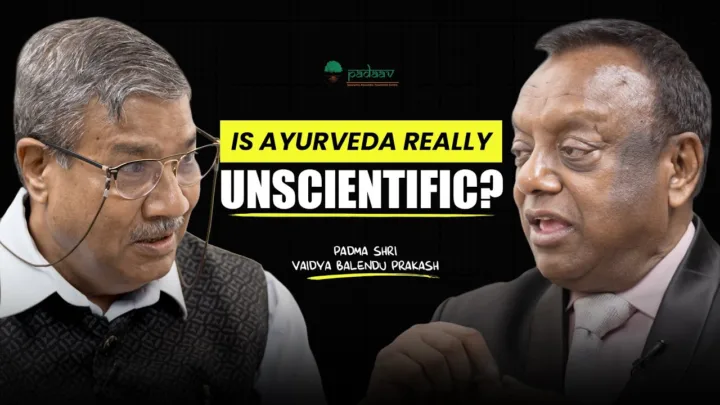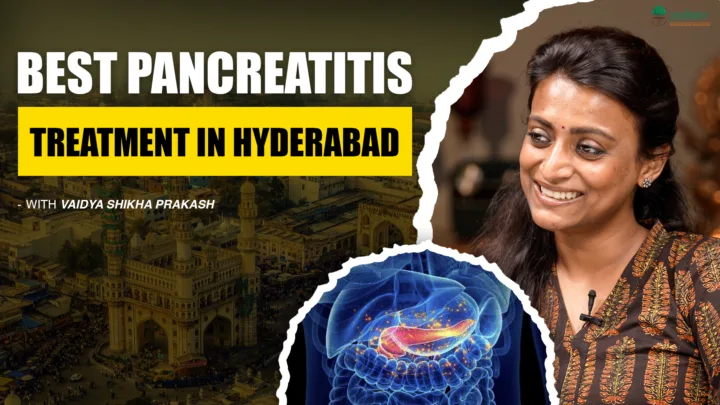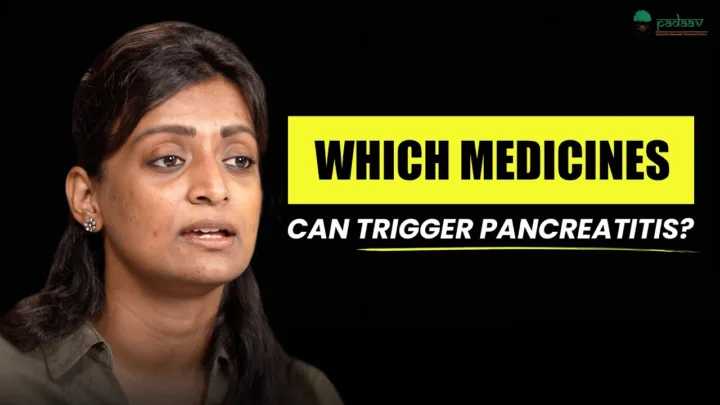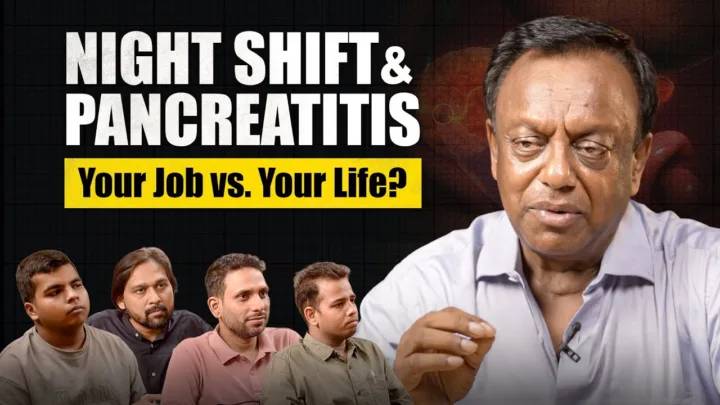The management of Pancreatitis a disease characterized by intense pain and organ damage—requires addressing both physical deficiencies and destructive lifestyle patterns. Vaidya Balendu Prakash engages with patients, dismantling common fears and misconceptions while offering a holistic path to stability.
Part 1: Addressing the Root of Fear and Mental Stress
A young, unmarried patient, Sumit (22), raised a core anxiety: what are the chances of his Pancreatitis being passed to the next generation?
Vaidya Prakash’s immediate response was not scientific but philosophical:
“Stop running the mind’s mill. If you want relief from this disease, you need total mental rest.”
He emphasizes that the first and most critical step at Padaav is 21 days of mental and physical rest (Vishram). He dismisses the patient’s fear of genetic transmission, pointing out that most patients are not afflicted by familial or genetic causes. The focus must be on the present: achieving stability now, before worrying about the future.
Part 2: Managing Organ Damage (Exocrine and Endocrine Deficiency)
Sumit then presented serious clinical data: his Fecal Elastase was 11.3 (indicating severe exocrine deficiency—inability to produce digestive enzymes) and his HbA1c was 7.3 (indicating endocrine deficiency—uncontrolled blood sugar/diabetes).
The Limits of Healing:
Vaidya Prakash was candid about the impact of the existing damage:
-
Exocrine Improvement: He stated honestly that based on his experience, significant improvement in these already damaged enzyme levels is unlikely. The exocrine deficiency exists because the pancreatic tissue is already damaged.
-
Endocrine Management: If blood sugar remains high, insulin is the safest option.
The Breakthrough of Amar Medicine:
However, the Amar medicine and the Padaav protocol offer a unique functional benefit:
-
Patients with exocrine deficiency, even with such low enzyme levels, can digest rich, nourishing foods (butter, cream, oil) without needing to take external synthetic enzymes. The medicine stabilizes the body’s ability to process food despite the deficiency.
-
He noted that many patients’ uncontrolled high sugar levels often normalize during the 21-day stay simply due to the disciplined diet and rest, often allowing them to reduce or eliminate insulin or other sugar medications.
The goal is not always reversing tissue damage (like the scarring seen in MRCPs), but preventing further progression and achieving a stable, symptom-free life.
Part 3: The Gallbladder and Lifestyle Connection
A separate patient, Sumit Rai (40), a pharmaceutical worker, asked about the risk of his gallbladder sludge turning into stones, potentially requiring surgery.
Vaidya Prakash diagnosed the sludge as a direct consequence of the patient’s lifestyle: long gaps between eating and poor breakfast habits.
-
How Sludge Forms: The gallbladder contracts to release bile only when stimulated by a good fat intake. Skipping breakfast or eating only light carbohydrates (tea, plain toast) means the gallbladder doesn’t contract properly, causing bile to stagnate and form sludge.
-
The Vicious Cycle: When the gallbladder doesn’t release enough bile (alkaline), the small pancreas overcompensates by releasing more of its own alkaline juice (pancreatic juice, pH 8.8) to neutralize the stomach acid. This overuse causes the pancreas to swell and become inflamed.
-
The Simple Solution: To fix the gallbladder, Vaidya Prakash recommended a simple, powerful Ayurvedic intervention: drinking 10 ml of warm cow’s ghee (clarified butter) first thing in the morning to force gallbladder contraction and release the sludge naturally.
Part 4: Final Advice on Living with Pancreatitis
Addressing the need to travel for his job, Vaidya Prakash advised the patient to accept that his body is no longer a “new model car.”
-
Accepting Limitations: The patient must stop the aggressive travel pace of his younger years. He advised the patient to develop a team to handle the travel while he manages the business from a stable location, emphasizing that true wealth is not accumulated by exhausting the body.
-
The Ultimate Rule: “Sarvam Parityaj Shariram Anupalay” (Abandon everything and protect the body). The body must be worked, but it must also be given necessary rest and discipline to ensure longevity.






